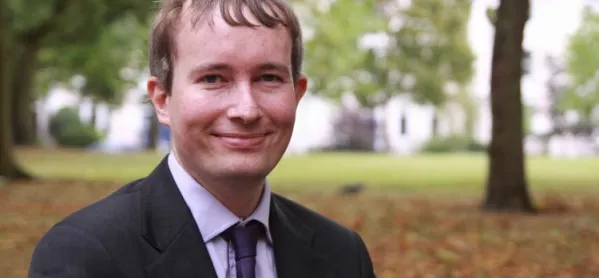More than 30,000 young people spend an entire year not in education, employment or training (NEET) three years after finishing secondary school, according to a major study by the Department for Education.
The progress of 637,200 pupils who completed key stage 4 in 2010-11 was tracked for three years by the DfE, in a study released last month.
Researchers found that by 2013-14 one in five were NEET at some point during that year with 130,700 young people falling into this category.
More than one in ten (11.2 per cent) of the pupils tracked became NEET for at least six months in 2013-14.
Long-term problem
Worryingly, 30,700 young people were NEET throughout 2013-14, equating to one in 20 (4.8 per cent) of those who finished key stage 4 in 2010-11.
Researchers found that more than one in three (37 per cent) of looked after children fell into this category of “long-term NEET”.
They were twice as likely to end up this way as those who had been identified as “children in need” by the government, of whom less than one in five (18 per cent) went on to become NEET for 12 months.
More than one in five of those who had been permanently excluded at school, in alternative provision or had attended a pupil referral unit also became long-term NEET, according to the research.
DfE under pressure to act
The findings have prompted demands for the government to improve the support given to young people, with the Learning and Work Institute condemning the scale of NEET.
Stephen Evans, the organisation’s chief executive, said: “These figures show that too many groups miss out. It is not acceptable that 30,000 young people spent a whole year NEET - and the findings for care leavers are particularly alarming”.
He added: “There is lots of great support for young people across the country, and many of the government’s policies have the scope to make a difference. But too often support is patchy and policy operates in silos. We desperately need a more joined up and concerted effort so all young people get the help they need”.
This comes after the shadow skills minister Gordon Marsden claimed earlier this month that the government is not doing enough to help young people into work or training, with the latest DfE figures showing no significant change in the proportion of young people who were NEET in 2016 and 2017.
A DfE spokesperson said: “Local authorities are responsible for supporting care leavers to make a successful transition from care to adulthood and we are helping them to increase the numbers of young people going into work or further training.”
They added: “In 2016, we published a care leaver strategy and last month we announced £5 million to support care leavers into education, employment or training. We are also introducing a care leaver covenant, which will bring private and public sector organisations together to provide opportunities such as work experience, traineeships, internships and more”.
Want to keep up with the latest education news and opinion? Follow Tes FE News on Twitter, like us on Facebook and follow us on LinkedIn




